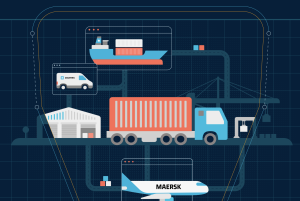 “Procurement fraud happens within the entire value chain of organisations. Because decisions are made on every level, some procurement officials get a chance to manipulate the system, and accept bribes,” says Lebogang Letsoalo, Director at Sincpoint Pty Ltd.
“Procurement fraud happens within the entire value chain of organisations. Because decisions are made on every level, some procurement officials get a chance to manipulate the system, and accept bribes,” says Lebogang Letsoalo, Director at Sincpoint Pty Ltd.
Speaking at the fraud and corruption symposium hosted by SmartProcurement, Letsoalo said that – from an economic perspective – we need to build new partnerships and contacts, and that economic and transformational development must happen. Unfortunately, unskilled people are hired for the task, and that is where the opportunity for corruption may arise.
Corruption in South Africa
Findings of a survey conducted by Transparency International – the global coalition against corruption – shows that South Africa is one of the countries where there is a notable increase in public perception that corruption is getting worse, particularly since 2008. The findings are based on the survey of 51 000 people in 34 African countries, and the report includes information about bribery, nepotism, embezzlement, fraud and collusive bidding by contractors.
Cyber corruption
“Cyber-security is the new in thing for developed countries, and that is where corruption and hacking is taking place. Developing countries need to catch up and find ways to protect themselves from hackers. Technology has introduced new ways of stealing, also known as ‘smart stealing’. Our world is now a digital revolution,” says Lloyd Kumbemba, Director at Afribes.
To illustrate a point about cyber corruption, Steven Powell – head of ENSafrica’s Forensics Department -warns of common corrupt practices such as:
• over-billing
• cover quoting
• business redirection
• bid rigging – inside information
• profit stripping
• need recognition schemes
• bid pooling
• slush funds
• electronic funds transfer fraud (diversion of payments)
According to Powell, useful tools to identify fraud and tender abuse include accessing various public databases to gather intelligence on buyers, managers and decision makers, and ensuring assets correspond to known income streams (such as properties, company links and motor vehicles). A further suggestion is to identify adverse information (or negative data) by using internet or company searches, and screen employees for negative histories of credit and criminal records.
Importance of setting standards
“As individuals, we need to set standards. If top management behaves unethically, such behaviour will infiltrate procurement as well. If the standard is right, and the values are right, procurement officials should be able to maintain the good position,” concluded Ronald Mlalazi, Head of Commerce Edge Academy.


























